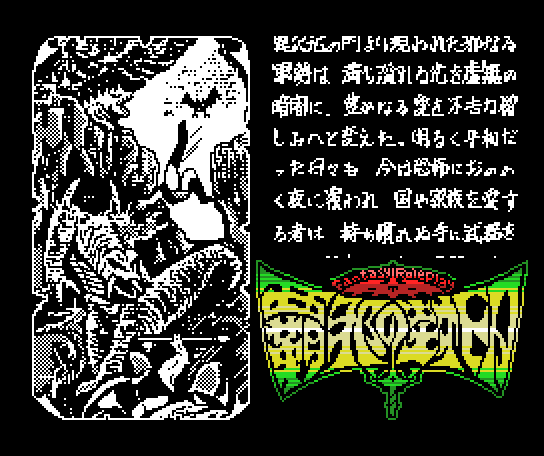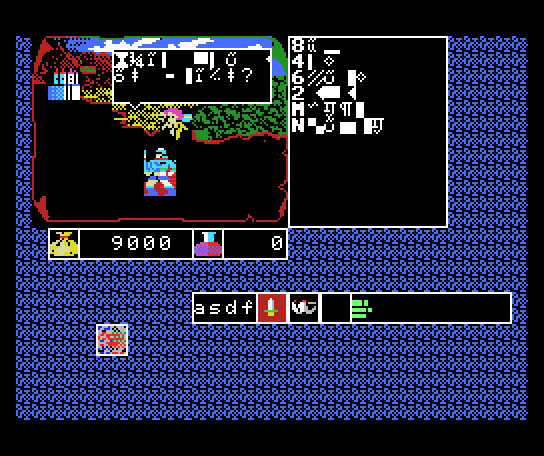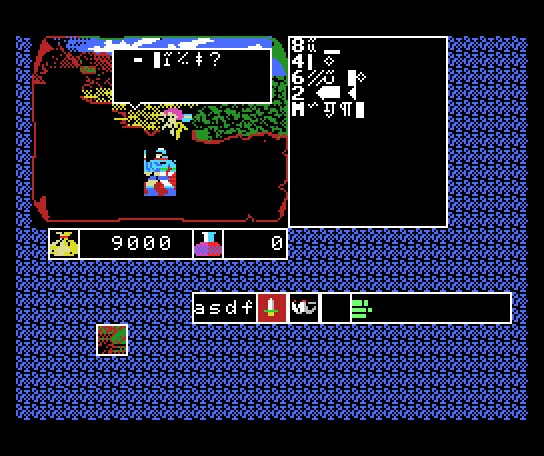Haja no Fūin for MSX
MSXGame controls in browser
Show Controller & SystemClick on play MSX game now button first to load the game, you can change the settings by clicking on the Settings icon / Help & Settings menu. Control keys:
Miracle Warriors: Seal of the Dark Lord
Online version of Miracle Warriors: Seal of the Dark Lord for MSX. Miracle Warriors: Seal of the Dark Lord (Haja no Fūin in Japan), is a role-playing video game developed by Kogado, released initially on the Japanese PC-88 in 1986 and then ported to various other systems, including a Sega Master System version which was released in North America. The game takes place in a world of five lands spread out over three continents and came with an elaborate grid-format map noting areas of interest in the game. Throughout the world are several towns. Towns have smiths, who can repair weapons and armor, and healers that can heal and sell herbs...
Game details
Other platforms online 2
You can play Miracle Warriors: Seal of the Dark Lord online also in a versions for75%
rating (2 users voted)
Covers - Box Art
MSX 1/2 Home Computers
Online emulated version of Miracle Warriors: Seal of the Dark Lord was originally developed for the MSX a standardized home computer architecture,
announced by Microsoft and ASCII Corporation in 1983. It was initially conceived by Microsoft as a product for the Eastern sector, and jointly marketed by Kazuhiko Nishi,
then vice-president at Microsoft and director at ASCII Corporation. Microsoft and Nishi conceived the project as an attempt to create unified standards among various
home computing system manufacturers of the period, in the same fashion as the VHS standard for home video tape machines.
MSX systems were popular in Japan and several other countries. Sony was the primary manufacturer of MSX systems at the time of release, and throughout most of the
products lifespan, producing more units than any other manufacturer. Eventually 5 million MSX-based units were sold in Japan alone.
Nishi's standard was built around the Spectravideo SV-328 computer. The standard consisted primarily of several off-the-shelf parts; the main CPU was a 3.58 MHz Zilog Z80, the Texas Instruments TMS9918 graphics chip with 16 KB of dedicated VRAM, the sound and partial I/O support was provided by the AY-3-8910 chip manufactured by General Instrument, and an Intel 8255 Programmable Peripheral Interface chip was used for the parallel I/O such as the keyboard.





